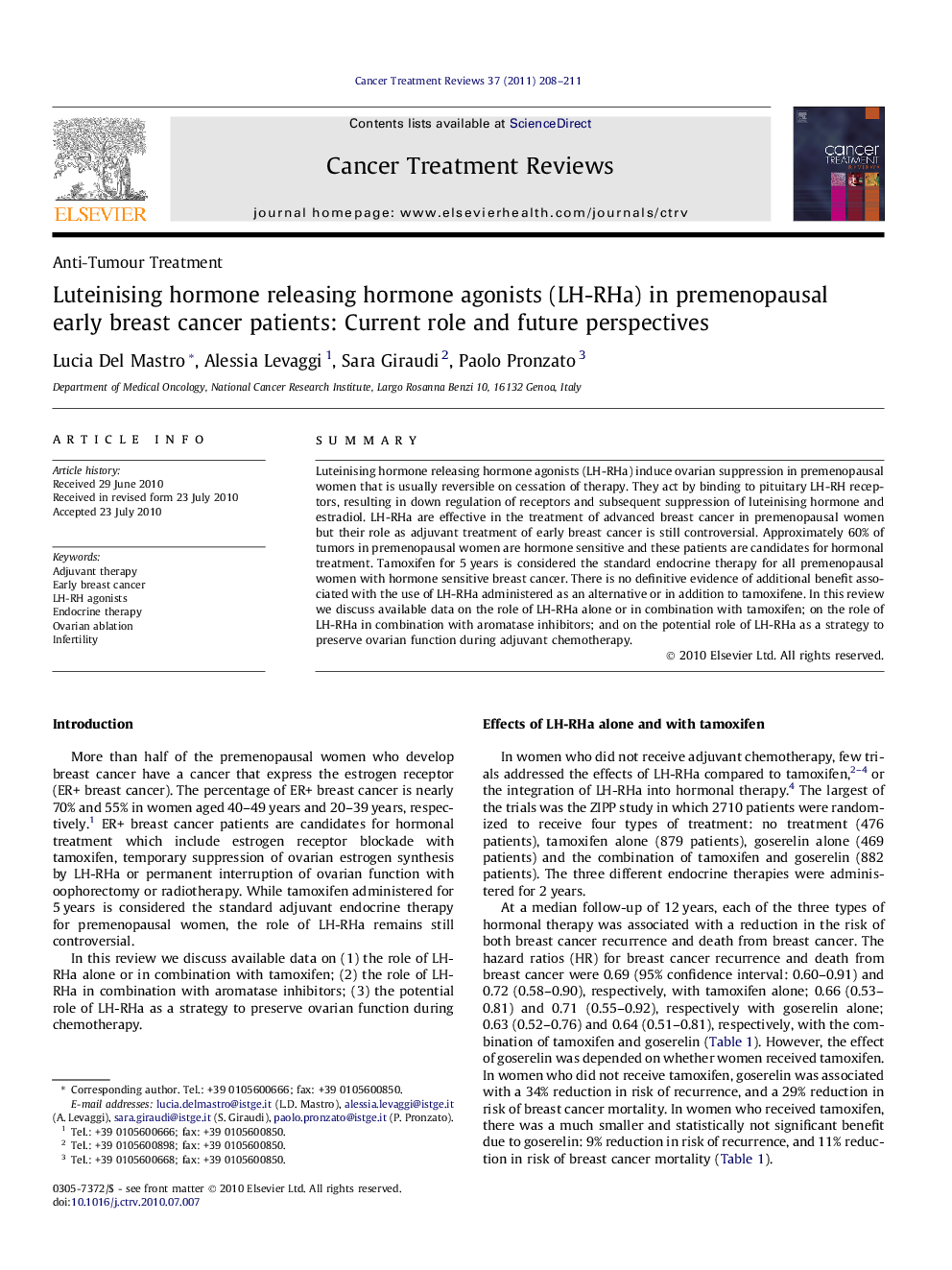| Article ID | Journal | Published Year | Pages | File Type |
|---|---|---|---|---|
| 3980091 | Cancer Treatment Reviews | 2011 | 4 Pages |
SummaryLuteinising hormone releasing hormone agonists (LH-RHa) induce ovarian suppression in premenopausal women that is usually reversible on cessation of therapy. They act by binding to pituitary LH-RH receptors, resulting in down regulation of receptors and subsequent suppression of luteinising hormone and estradiol. LH-RHa are effective in the treatment of advanced breast cancer in premenopausal women but their role as adjuvant treatment of early breast cancer is still controversial. Approximately 60% of tumors in premenopausal women are hormone sensitive and these patients are candidates for hormonal treatment. Tamoxifen for 5 years is considered the standard endocrine therapy for all premenopausal women with hormone sensitive breast cancer. There is no definitive evidence of additional benefit associated with the use of LH-RHa administered as an alternative or in addition to tamoxifene. In this review we discuss available data on the role of LH-RHa alone or in combination with tamoxifen; on the role of LH-RHa in combination with aromatase inhibitors; and on the potential role of LH-RHa as a strategy to preserve ovarian function during adjuvant chemotherapy.
